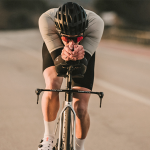Peak Performance, Scandinavia's largest technical sports and fashion wear brand, generated revenue of DKK 953m ($154 mm) in the fiscal year ended June 30, up 2.5 percent from the prior fiscal year, or 4.1 percent in currency-neutral terms, according to parent company IC Group.
The negative impact of owned stores in the first half of the fiscal year was outweighed by positive revenue growth at remaining stores and the brand's e-commerce channel in the second half of the year. Same-store revenue (excluding outlets) increased 13 percent, driven by higher sales in both the physical stores and the e-commerce channel particularly in the second half of the year.
Wholesale revenues also grew at the Danish maker of ski, outdoor, training, and golf apparel, albeit less significant retail revenues.
In the first half of the fiscal year, Peak Performance closed several money-losing owned stores and wholesale accounts, while bringing on new, more premium distribution partners. It also eliminated some product categories and upgraded others, particularly warm weather collections.
For the entire fiscal year, Wholesale and Franchise sales accounted for 68 percent of revenue, while Retail accounted for 32 percent of revenue. Peak Performance ended the year with 32 owned stores, 45 franchised stores, and 1,918 wholesale customers.
Peak Performance earned 63 percent of revenue from the Nordic region, 33 percent from the rest of Europe, and 4 percent from the rest of the world during the period. In the Nordic region, revenue was flat. Norway and Denmark generated growth, whereas the opposite was the case in Sweden. Regions in the Alps contributed positively to revenue growth, with Germany and Switzerland as the main contributors.
Profits surge in absence of impairments
Operating profit amounted to DKK 107million ($17 mm), corresponding to an EBIT margin of 11.2 percent, compared with 7.8 percent in fiscal 2014/15. The dramatic improvement was attributable to the financial year 2013/14 being negatively impacted by the decision to close a number of stores, leading to impairments at the end of the year. In addition, staff costs in 2013/14 were negatively impacted by a change in CEO and higher than usual marketing costs.
In fiscal 2014/15, earnings were negatively impacted by a lower gross margin due to higher commercial discounts and an increased number of sales in owned stores. However, strict cost control contributed to improving the expense ratio compared to the previous year.
Peak Performance accounted for 36 percent of revenue and 40 percent of
earnings before income taxes at IC Group, whose two other core
businesses are the men's and women's fashion brands Tiger of Sweden and
By Malene Birger.
Outlook for fiscal 2015/16
Improving the quality of product and distribution will remain a key focus for Peak Performance in fiscal 2015/16.
“Optimization of the brand’s own portfolio of stores has been completed, but the brand will also review wholesale customers and franchise partners,” reads IC Group's 2014/15 Annual Report. “Quality may never be compromised neither in our products, nor in our distribution channels. Strong positioning in the Nordic and the regions in the Alps are crucial to our long-term focus, which is to generate growth, expand internationally and improve profitability.”
IC Group expects overall revenue to increase by approximately 4 percent and the EBIT margin to settle at approximately 10 percent in fiscal 2015/16.
”We have a clear and well-defined focus on the Premium segment, and we have three strong brands which have delivered solid and satisfactory results during this financial year,” said CEO Mads Ryder. “We have now implemented a structure which supports the growth targets set out for each of these three brands. They all show a strong potential for further international expansion. This potential must be exploited, and we must seize all future possibilities. We need to improve our performance in respect of both growth and earnings, and we are determined to do so.”















